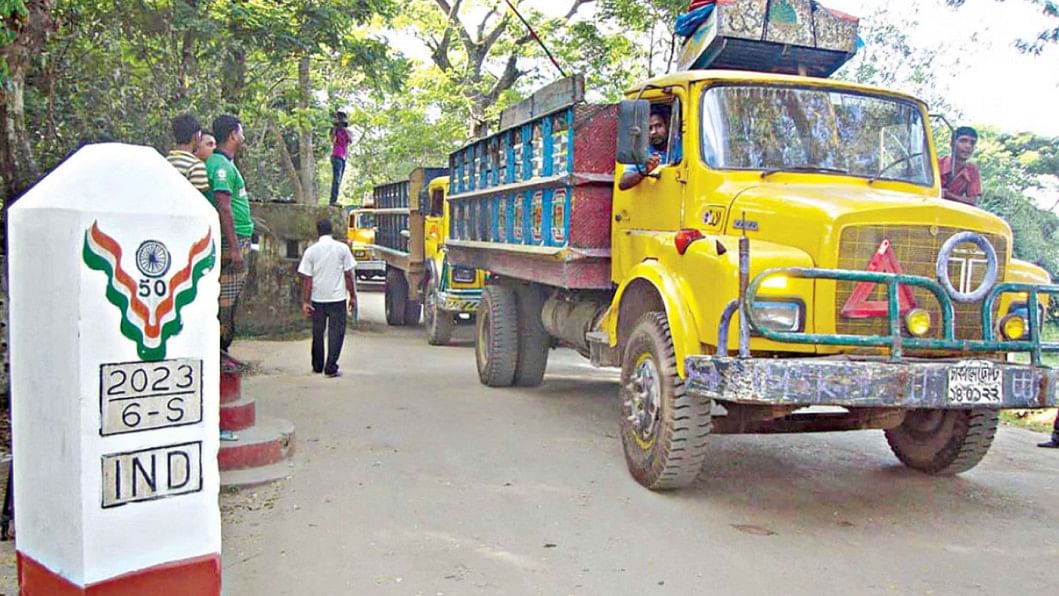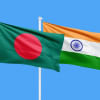Cancellation of Transhipment due to ‘some developments’

India yesterday said its withdrawal of transshipment facility to Bangladesh for third-country exports should be seen in the backdrop of "some of the developments" that preceded it.
Responding to media queries during the weekly press briefing, Ministry of External Affairs (MEA) spokesperson Randhir Jaiswal said, "I would urge you to look at some of the developments that preceded it, so that you get the full perspective on the issue."
Although Jaiswal did not elaborate on what those developments were, he reaffirmed India's desire for a positive and constructive relationship with Bangladesh, emphasising New Delhi's continued support for a "democratic and inclusive Bangladesh."
Jaiswal further said that the withdrawal would not affect trade in South Asia, pointing out that Bangladesh can still trade with Nepal and Bhutan through India's land ports.
He also said the move was prompted by cargo congestion at Indian airports, which had begun affecting Indian exporters.
However, sources in India familiar with the matter said that Bangladesh had earlier decided to close three land ports used for yarn imports from India, citing infrastructure constraints -- a move made even before India revoked the transshipment facility.
Bangladesh's commerce ministry's recommendation in this regard came in March, added the sources.
They said the decision raised concerns in New Delhi, as yarn is a crucial raw material for Bangladesh's garment industry. The shift to sea port-only imports was perceived by some as a strategy to open the door for Pakistani suppliers, albeit at higher costs.
This decision by Dhaka did not go down well in New Delhi, they added.
When asked about the ongoing visit of Pakistan's Foreign Secretary Amna Baloch to Bangladesh, first such visit in 15 years, Jaiswal responded briefly, saying, "We have taken note of it."
During the briefing, Jaiswal also addressed Indian media reports alleging the involvement of Bangladeshi nationals in recent violent protests against the Wakf Amendment Act in West Bengal's South 24 Parganas and Murshidabad districts. He said the Indian Ministry of Home Affairs would take appropriate action, and all Bangladeshis -- whether staying in India legally or illegally -- would be dealt with in accordance with Indian laws and regulations.
Asked about the Bangladesh Khilafat Majlis's threat to march to the Indian High Commission in Dhaka on April 23 over the Wakf Amendment Act, Jaiswal said, "It is an internal issue of India."

 For all latest news, follow The Daily Star's Google News channel.
For all latest news, follow The Daily Star's Google News channel. 








Comments